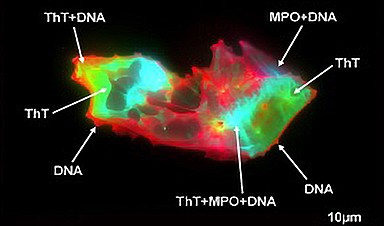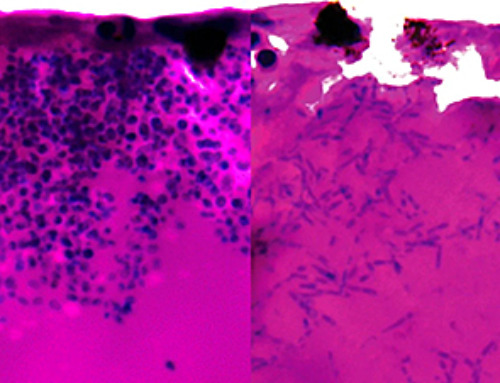Public health experts are divided over how many people are getting long COVID-19, a potentially debilitating condition that comes after a patient has recovered from the coronavirus.
Ill effects from the condition can include fatigue, pain, neurological issues and even changes in mental health.
Initially, public health officials believed that only a small minority of people would suffer from long COVID-19. But some studies now indicate a majority of those infected with the coronavirus are experiencing long COVID-19 symptoms.
Still, estimates on the numbers of people with long COVID are all over the map.
Researchers from the Penn State College of Medicine found that more than half of COVID-19 survivors had long COVID-19.
Another study from the University of Arizona found that about 2 out of 3 people who experienced mild or moderate cases of coronavirus had long-lasting symptoms.
Other reports have been more conservative, estimating anywhere between 10 to 30 percent of those infected develop long-term symptoms. Those who experience ongoing symptoms from long COVID-19 have sometimes come to be known as COVID-19 long haulers.
One problem in figuring out how many people get long COVID-19 is defining it.
Apart from the wide range of symptoms, there is still debate over when a person is considered to have long COVID-19. Some health care authorities consider a patient to have the condition if symptoms persist after three to six weeks, while other think it should be considered on a longer basis.
Jim Heath, president and professor at the Institute for Systems Biology, is leading the Pacific Northwest consortium researching long COVID-19 as part of the National Institute of Health's (NIH) RECOVER initiative, which is looking into the post-COVID-19 condition and potential ways of preventing and treating it.
Heath told The Hill that if one definition of long COVID-19 was being used — one in which symptoms lingered about four to six weeks after infection — then roughly half of those infected would be considered to have long COVID-19.
According to Heath, an estimate of 15 to 20 percent of coronavirus survivors experiencing long COVID-19 after six months was a reasonable "educated guess" and he added that there was evidence to support that rate of occurrence.
When reached for comment by The Hill, the NIH said initial studies have found that at least half of COVID-19 patients who were hospitalized reported "persistent weakness or fatigue" months after their recovery.
Studies on the prevalence of long COVID-19 have been "relatively few," according to the NIH, and they have all focused on people who had symptomatic cases of COVID-19.
The NIH said numerous observational studies in both children and adults are being conducted to find potential treatments for long haulers. The agency has requested applications for new clinical trials to launch this summer to test potential ways of preventing and treating long COVID-19.
"In contrast to the wealth of prior knowledge that led to the vaccines for Sars-CoV-2 and a host of other viruses, there is much less known about what causes persistent symptoms following infectious illnesses or how to best treat them. As a consequence, there is more knowledge needed to fuel the scientific advances to come," the NIH said.
News
We May Never Know if AI Is Conscious, Says Cambridge Philosopher
As claims about conscious AI grow louder, a Cambridge philosopher argues that we lack the evidence to know whether machines can truly be conscious, let alone morally significant. A philosopher at the University of [...]
AI Helped Scientists Stop a Virus With One Tiny Change
Using AI, researchers identified one tiny molecular interaction that viruses need to infect cells. Disrupting it stopped the virus before infection could begin. Washington State University scientists have uncovered a method to interfere with a key [...]
Deadly Hospital Fungus May Finally Have a Weakness
A deadly, drug-resistant hospital fungus may finally have a weakness—and scientists think they’ve found it. Researchers have identified a genetic process that could open the door to new treatments for a dangerous fungal infection [...]
Fever-Proof Bird Flu Variant Could Fuel the Next Pandemic
Bird flu viruses present a significant risk to humans because they can continue replicating at temperatures higher than a typical fever. Fever is one of the body’s main tools for slowing or stopping viral [...]
What could the future of nanoscience look like?
Society has a lot to thank for nanoscience. From improved health monitoring to reducing the size of electronics, scientists’ ability to delve deeper and better understand chemistry at the nanoscale has opened up numerous [...]
Scientists Melt Cancer’s Hidden “Power Hubs” and Stop Tumor Growth
Researchers discovered that in a rare kidney cancer, RNA builds droplet-like hubs that act as growth control centers inside tumor cells. By engineering a molecular switch to dissolve these hubs, they were able to halt cancer [...]
Platelet-inspired nanoparticles could improve treatment of inflammatory diseases
Scientists have developed platelet-inspired nanoparticles that deliver anti-inflammatory drugs directly to brain-computer interface implants, doubling their effectiveness. Scientists have found a way to improve the performance of brain-computer interface (BCI) electrodes by delivering anti-inflammatory drugs directly [...]
After 150 years, a new chapter in cancer therapy is finally beginning
For decades, researchers have been looking for ways to destroy cancer cells in a targeted manner without further weakening the body. But for many patients whose immune system is severely impaired by chemotherapy or radiation, [...]
Older chemical libraries show promise for fighting resistant strains of COVID-19 virus
SARS‑CoV‑2, the virus that causes COVID-19, continues to mutate, with some newer strains becoming less responsive to current antiviral treatments like Paxlovid. Now, University of California San Diego scientists and an international team of [...]
Lower doses of immunotherapy for skin cancer give better results, study suggests
According to a new study, lower doses of approved immunotherapy for malignant melanoma can give better results against tumors, while reducing side effects. This is reported by researchers at Karolinska Institutet in the Journal of the National [...]
Researchers highlight five pathways through which microplastics can harm the brain
Microplastics could be fueling neurodegenerative diseases like Alzheimer's and Parkinson's, with a new study highlighting five ways microplastics can trigger inflammation and damage in the brain. More than 57 million people live with dementia, [...]
Tiny Metal Nanodots Obliterate Cancer Cells While Largely Sparing Healthy Tissue
Scientists have developed tiny metal-oxide particles that push cancer cells past their stress limits while sparing healthy tissue. An international team led by RMIT University has developed tiny particles called nanodots, crafted from a metallic compound, [...]
Gold Nanoclusters Could Supercharge Quantum Computers
Researchers found that gold “super atoms” can behave like the atoms in top-tier quantum systems—only far easier to scale. These tiny clusters can be customized at the molecular level, offering a powerful, tunable foundation [...]
A single shot of HPV vaccine may be enough to fight cervical cancer, study finds
WASHINGTON -- A single HPV vaccination appears just as effective as two doses at preventing the viral infection that causes cervical cancer, researchers reported Wednesday. HPV, or human papillomavirus, is very common and spread [...]
New technique overcomes technological barrier in 3D brain imaging
Scientists at the Swiss Light Source SLS have succeeded in mapping a piece of brain tissue in 3D at unprecedented resolution using X-rays, non-destructively. The breakthrough overcomes a long-standing technological barrier that had limited [...]
Scientists Uncover Hidden Blood Pattern in Long COVID
Researchers found persistent microclot and NET structures in Long COVID blood that may explain long-lasting symptoms. Researchers examining Long COVID have identified a structural connection between circulating microclots and neutrophil extracellular traps (NETs). The [...]





















